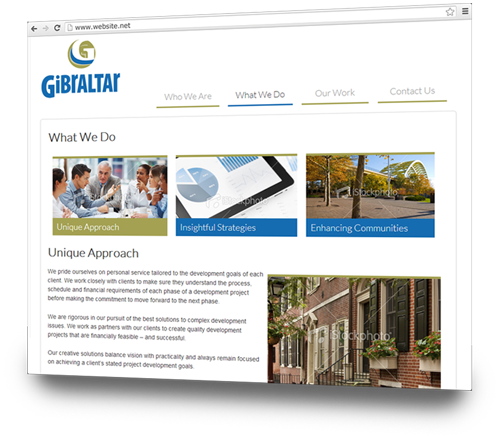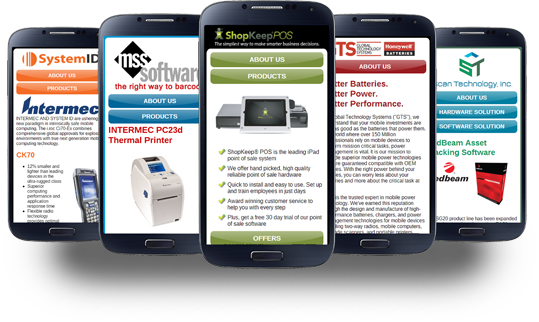



Dan Johnson has been a web designer/developer since 1996. Armed with a degree in Physics and an artistic eye, Dan has used his unique blend of talents to deliver Information Design to his clients. Dan co-founded Eclectic Studios, Inc. in 1997 and more recently began his own development company, version2, LLC. Throughout his career he has worn a variety of hats including designer, programmer, IT guy, consultant, client wrangler, presenter, project manager, visionary and janitor.

In 2006 I collaborated with a marketing agency to develop a web management system for YMCAs. Built from scratch with ColdFusion and MySQL, SiteTogether is a web content management system with dedicated components for maintaining an online schedule of class offerings across multiple branches. In 2010, a mobile version was added to the site. The mobile version provides streamlined access to content with big buttons and accordion features that quickly display content for even the fattest of fingers.
The system is used by more than 500 YMCA staff members and manages website content and schedules for more than 50 branches. The system delivers approximately one million pages per month.

In 2012 I was hired to develop a web site for Gibraltar Development Corp. To keep costs down, it was decided that Wordpress would speed development while providing a convenient means for future updates.
Brand strength was a primary concern. A responsive template was chosen and customized with Google Fonts and additional styling. To provide brand consistency, images in Wordpress content areas are automatically styled with brand-colored borders to ensure consistent branding throughout the site, even when updated by the client.

In 2013 I was asked to create "a few simple mobile sites that would need to be completely different." These sites were part of a QR-Code marketing campaign for equipment resellers. The mailers were going out. I was given a day and a half.
I created a flexible-width template, a series of CSS Accordion-Buttons (rounded corners with a gloss effect) so the color could be changed via CSS. In addition, a Slider/Swiper was added for browsing currently promoted products. The response from the head designer was, "Thanks for making it look so good!"

I have a passion for identity design. It's a bit like being tasked with creating a new letter for the alphabet, or more accurately, a hieroglyphic. A good logo isn't just a creative layout, it says something (often intangible) about a brand. Conveying the ideals that surround a brand into a single symbol is a fascinating exercise in minimalism. You strip away all the irrelevant things and represent the core message as elegantly as possible.

Clients are people too. (Well, most are.) I have a good track record with clients. Specifically, I have two skills that are essential, and often overlooked, in web development:
When I first consult with a client they may have an idea of what they want, but their thinking has been shaped by TV commercials, flavor-of-the-month business articles, and bad past experiences. Through a casual conversation about their business and plans, I draw out the real issues, strengths, weaknesses, and project goals. Once we've figured that out, we can discuss ways to address points of pain and reach their true goals.
Once upon a time I was a scientist. Specifically, I earned a degree in Physics. During that time I worked as a lab assistant and would explain complex science concepts to freshman. It was very rewarding. The act of explaining a concept helps order your own thoughts. You end up understanding it better yourself.
Explanations don’t have to be overly technical. If you can create an understanding of the core concepts then you’ve helped them shed preconceptions and made them receptive to learning and listening. Besides, a client who understands what’s going on is much easier to work with than one who is confused and frustrated.
There is a tendency to break web design into two disciplines: Design and Programming. While this does work, I find the development process works better when teams have overlapping skill sets. Just as a race-car driver performs better when s/he understands the mechanics of the car, a designer will perform better with an understanding of the mechanics of the system they’re working in.
When I work with a traditional (print) agency, they often suggest that they can “help me with the design part” of web design. At this point I wish I had a better poker face. While I have enormous respect for print design, designing for the web is a completely different skill. Being good at one doesn’t guarantee that you're good at the other.
Good web designers certainly have an eye for aesthetics, but web design is also about information design and how to make lots of moving parts interact...not just making a document look good.
As a kid, I used to tinker with electronics on a bench in my dad’s woodworking shop. I’d get so excited when I saw something that I built come to life. I still get that same giddy feeling when I create a new set of CSS rules or a complex SQL query and see it work for the first time. I love the process of invention in what I do.
There are a few rules that were impressed upon me while getting my degree. They’re rooted in science but are applicable to a lot of life.

Check out my web design agency: version2.
Drop me a line. Let's make some awesome.